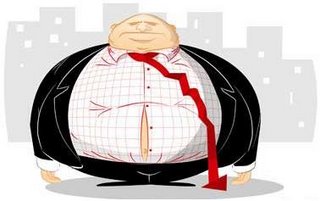U.K.: slowly going under

UK economic growth was unexpectedly revised down to 0.7% in the three months to June, official figures show.
An overestimation of the impact of the World Cup on the UK's gambling industry partly led to the downwards revision in gross domestic product (GDP).
The Office for National Statistics (ONS) had previously estimated growth of 0.8% for the second quarter.
However, the year-on-year rate of GDP growth remained at 2.6%.
The ONS said the downwards revision in second-quarter growth was also a result of new health service figures, which showed that hospital admissions had been lower than expected.
'Marginal revision'
The downwards revision came as a surprise to economists, many of whom had expected the second-quarter figure to remain unchanged.
The ONS also revised down the GDP deflator, which is a key measure of inflation, to an annual rate of 2.2% from 3.4%.
"The marginal downward revision to quarter-on-quarter growth does not materially change the outlook for interest rates," said Howard Archer, chief UK and European economist at Global Insight.
"However, we believe that growth is likely to lose some momentum over the coming months as consumers continue to face significant headwinds and exports are limited by a slowdown in global growth."
Separately, the ONS said Britain's balance of payments deficit reached £6.986bn in the second quarter, lower than forecasts for a deficit of £8.0bn.
Labels: competitive, deficit, economic, economy, England, finances, financial, growth, investing, investments, market, money, news, pound, stocks, U.K.

